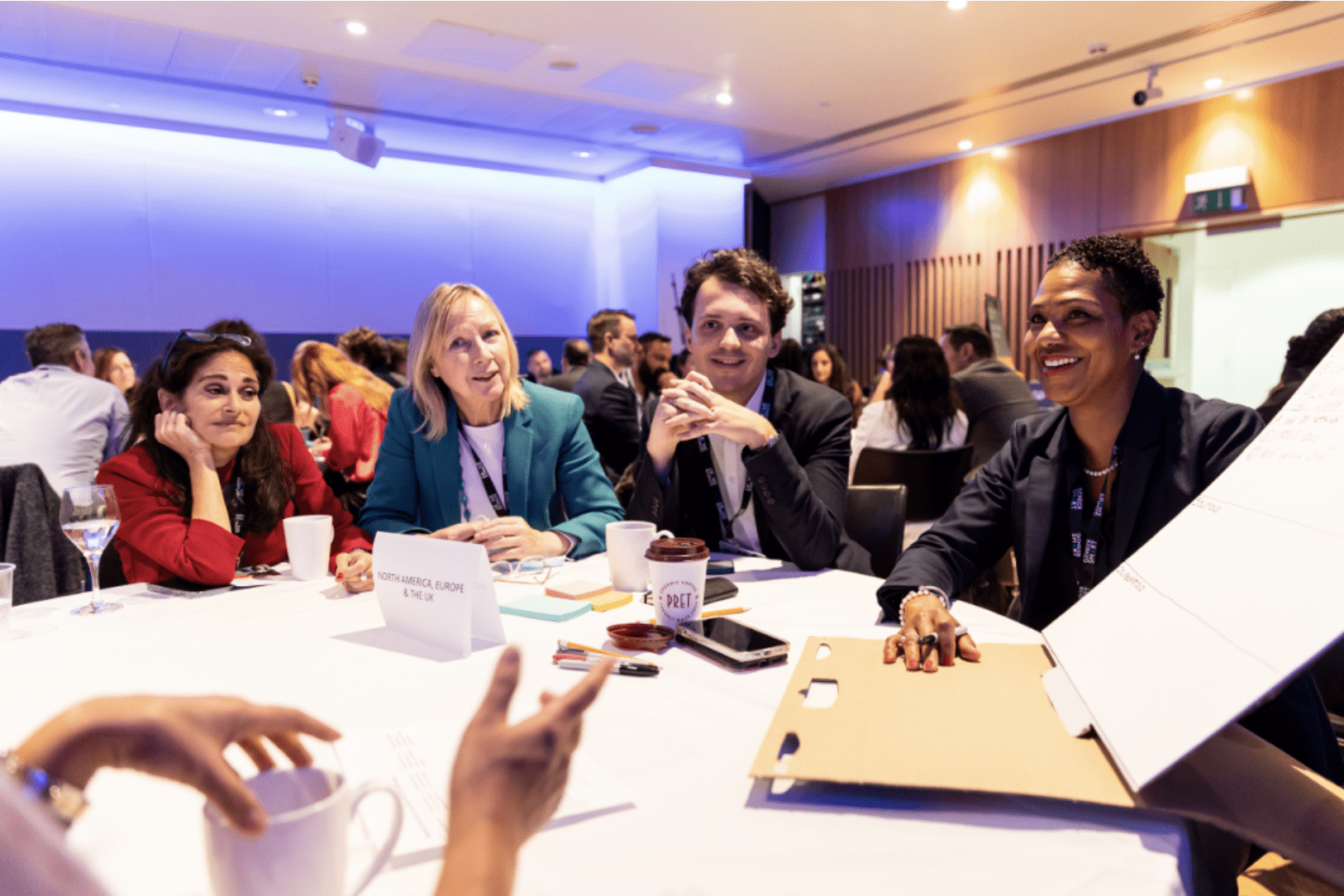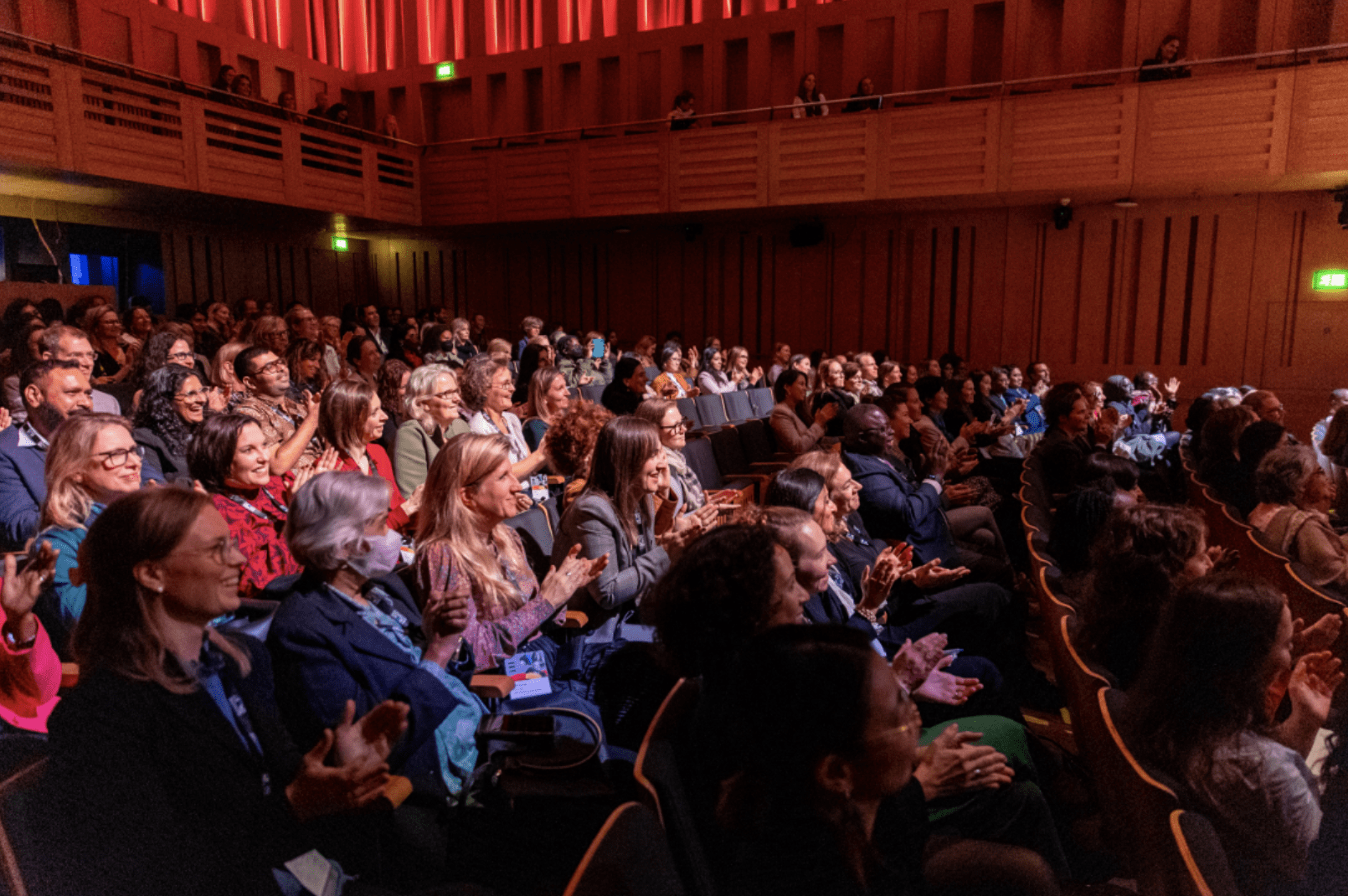Last month, Elias Habbar-Baylac (MBA 23’), SAIF Student Advisory Board Member & Fellow of the Center for Equity, Gender, and Leadership (EGAL), was invited to speak and facilitate sessions at the Global Gender-Smart Investing Summit in London, England. This summit is the world’s largest gathering for impact investors, investment banks, and fund managers committed to building a new era of sustainable, equitable growth. We took this opportunity to learn from him, understand emerging trends, and discuss the state of gender and JEDI-lens investing.

How did you come to the field of gender-lens investing?
As a global citizen, I developed an early understanding of the inequities that exist across borders and impede access to economic opportunity. I was raised by a single mother with whom I vicariously lived the issues women face across many spheres of life including issues of care and the inefficient care economy, access to leadership and glass ceilings, or systemic biases. Women are not a minority and we’ve made so much progress, but gaps in access are still pervasive and too visible across countries. I started by researching social biases, norms, and inequality economics, and later carved out a path for myself in impact investing that prioritized equity at the core of the sustainability transition ahead of us. While working in sustainable finance at the European Bank and British International Investment, I was transformed by international visits and due diligence meetings that really made me question the status quo on so many levels – from eliminating gender violence and building safety features at the core of the urban mobility options we were financing, to strengthening access to climate adaptation and resilience technologies through capital for women. Ultimately, as a queer investor myself, I believe the systemic gender norms we disrupt across countries can pave the way for more equity for under-represented and diverse communities like LGBTQs globally.
What is gender-smart investing and what should we know about this area of sustainable and impact finance?
Put simply: gender-smart investing is just smart investing. Gender-smart investing (or gender-lens investing) is an investment strategy grounded in the belief that investors can unlock tremendous value (and impact) by promoting opportunities for women and diverse communities across the value chain. Gender-smart investing is part of the broader set of strategies falling under justice, equity, diversity, and inclusion-driven investing (JEDI). As a venture capital investor, this means for example looking into solutions like safe e-mobility for women in countries where access to transport is lacking, FinTech products prioritizing access to credit, or FemTech products that boost women’s access to health or reduce care burdens. Because we seek impact across the value chain and not only in the products we invest in, investors can choose to focus on the diversity of their portfolio founders or fund managers they back. We see both trends currently in private markets both in the U.S. and globally and the diversity of investment theses and strategies is welcome. The key to gender-smart investing is around intentionality and transformation–it’s about challenging pre-existing assumptions across investment cycles and making the right choices to unlock opportunities.
What was your role at the latest Gender-Smart Investing Summit? What did you learn?
I was invited by one of my mentors, Suzanne Biegel, who is the co-founder of Gender-Smart and a world champion for gender investing globally, to co-facilitate this year’s sessions on the future of gender and climate investing. As a climate investor, one of my areas of focus has been on transforming industries to embed climate equity at the core. Together with former colleagues, we published and presented investment guides at COP-26, which helped international investors adopt gender-lens investment strategies to transform climate finance. While progress has been made in the last two years, there is so much more to learn to make the right investment choices as we gear towards more and more climate mitigation, adaptation, and resilience finance on our route to net-zero emissions. The two sessions I co-facilitated with equity leader and CEO of Kite Insights Sophie Lambin were extremely engaging. This year, we asked investors to imagine distinct scenarios in 2042, in a world in which either equity or climate goals have stalled and either (or both) inequities and climate change have become unsustainable. What I learned was that, through experimentation, we maintained strong innovation and brainstorming with investors across asset classes. There is still much to achieve to really make sure climate investors and gender-lens investors dialogue, converge, and do not go on separate paths.
Wrapping up this year’s summit, what is the state of the field globally?
This year’s summit came after two years of pandemic and helped leaders realize the traction we have built for investing with a justice, diversity, equity, and inclusion (JEDI) lens globally. I was so pleased to see the largest private equity funds like EQT Partners and banks like UBS and Citi adopt impact strategies and gender criteria like 2X alongside more traditional impact investors. What we also see is demand for more, demand for true transformation, and at scale across financial markets. Another key topic this year was the emergence of a new generation of female and diverse fund managers who are revolutionizing investing in VC, PE, funds of funds, and other asset classes. We see that here in the Bay Area with venture capital investors like L’Attitude Ventures, Kapor Capital, and Concrete Rose Capital, and I was so glad to see transformation reaching funds in Mexico, Canada, many African countries, and beyond. Lastly, as Laurie Spengler, another artisan of gender-lens investing, concluded during the summit: ‘the future is not set in stone’. This year’s summit deeply encouraged investors to maintain their drive and hopes for a better future in the face of strong adversity (gender rights have never been threatened so dramatically in the U.S. and globally).
How is Berkeley Haas engaging with the ecosystem and how can we learn more?
Berkeley Haas has a spectacular ecosystem for faculty, researchers, and students to engage on the future of gender, diversity, and inclusive finance. Our faculty is building impact across gender and inclusion themes: from Prof. Solene Delecourt, who researches women’s access to entrepreneurship and the care economy, to playbooks on equitable technologies and courses with SAIF and EGAL professional faculty like Jorge Calderon and Bulbul Gupta, who have both been pioneers in inclusive investing. Our SAIF and EGAL experiential classes like the Haas Impact Fund and Equity-Fluent Leadership, are formidable opportunities to further develop our collaboration with JEDI-lens investors. For example, our Equity-Fluent Leadership students are this semester working with Gender Smart and the 2X Collaborative on the next global certification for gender-lens investors. Haas is always learning and challenging the status quo!

